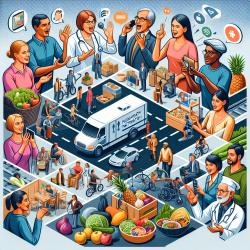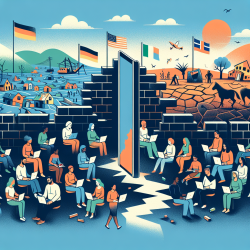Food insecurity remains a pressing public health issue, particularly among immigrant populations who face unique challenges in accessing nutritious food. A recent research article titled "Transportation and Language Access as Crucial Pillars for an Immigrant-Inclusive 21st-Century Food Security Program" sheds light on two often overlooked determinants of food security: transportation and language access. This blog will explore how practitioners can leverage the findings of this study to enhance their skills and contribute to more inclusive food security programs.
The Significance of Transportation and Language Access
The research highlights that transportation is a critical factor affecting healthcare access, which extends to food security. Many immigrant communities rely on transportation to access culturally appropriate foods, which are not always available in their immediate neighborhoods. This is particularly true for urban immigrant communities, such as Chinese Americans in New York City, who prioritize culturally specific grocery items.
Language access is equally vital. Limited English proficiency can hinder immigrants' ability to navigate food security programs effectively. The study emphasizes the importance of providing stable translation services within city and municipal food programs to ensure non-English speakers can access necessary resources.
Implementing Research Findings
Practitioners can enhance their skills by integrating the following strategies based on the research findings:
- Advocate for Translation Services: Work with local governments and community organizations to implement stable translation services in food security programs. This includes providing translated materials, language support for enrolling in benefits, and culturally relevant recipes.
- Study Transportation Patterns: Conduct research on transportation as a determinant of food security among immigrant populations. Understanding these patterns can help develop targeted interventions that connect individuals with essential resources.
- Encourage Participation in Stipend Programs: Support community-engaged approaches that involve immigrants in stipend programs designed to curb food insecurity. These programs have shown promise in promoting healthful purchases.
- Promote Public Participation in Research: Encourage diverse community participation in research efforts to ensure that interventions address the specific needs of various populations. Participatory mapping strategies can be particularly effective.
The Path Forward
The insights from this research underscore the need for inclusive policymaking that addresses the diverse needs of immigrant communities. By focusing on transportation and language access, practitioners can play a pivotal role in designing effective food security programs that foster community trust and engagement.










